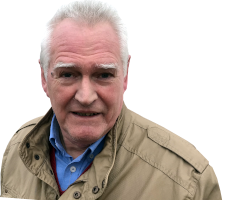search
date/time
 | Yorkshire Times A Voice of the Free Press |

Mike Tilling
Arts Correspondent
1:00 AM 11th November 2023
arts
Review
Seventh Son - Sebastian Faulks

But this is not a novel about conflict, nor is it science fiction. It is, quite explicitly, a novel about what it means to be human, where we are now, and where we might be going. It poses the question, ‘Just because we can do something, should we go ahead and do it?’
Main character, Seth, is an anomaly. He has dubious ancestry but lives with loving parents who do everything that responsible parents should, and he grows up well adjusted. However, there is something different about him: he possesses uncanny intuition, and first girls, then women, find him exceptionally attractive. Perhaps it is precisely his strangeness that is so appealing.
Seth’s co-protagonist is Talissa Adam, an American academic searching for financial support to further her research. The decision she makes in accepting money from the Parn Foundation will determine the course of her life and her interaction with Seth.
The genetics element of the writing is very clearly set out – for the non-scientist. In the interest of clarity, Faulks goes over the same ground a number of times, spouted by a number of different characters, since understanding the scientific component is integral to understanding the plot.
Or is it? I think readers are so accustomed to allowing authors to use complex background material that they are unfazed by recondite detail, which allows them to slip by in the interest of a fluent read. Sensible authors will recognise this and give just enough to indicate a direction of travel.
Faulks himself, in an afterword, poses just this question: ‘How does a novelist write about science?’ I think the answer, in his case, is convincingly. However, it would be misleading to dwell too long on this aspect of the novel; the focus is on how people react in the presence of exceptional circumstances. In this respect, The Seventh Son satisfies readers’ demands.
Faulks now has an impressive back catalogue of contrasting work. He is adept at reading the zeitgeist and elbowing the hornets nest of modern concerns without disturbing too many of the ferocious creatures concealed within.
The Seventh Son is published by Penguin